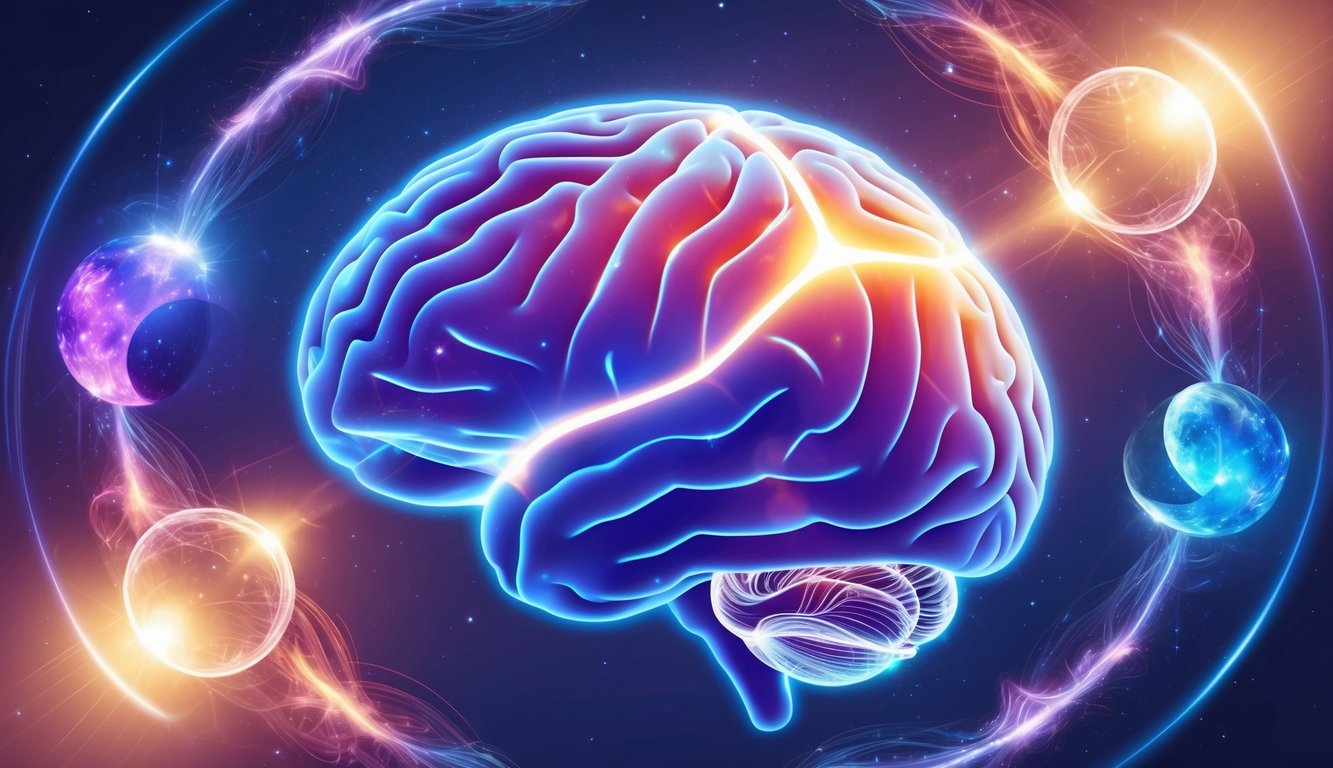Align Your Life with Your True North
The Power Quadrant System decodes your natural talents and pinpoints the career, timing and relationships that let you earn more, love deeper, and wake up eager for the day.
- Uncover your #1 high-income strength
- Draw in partners who raise your energy
- Work when your body’s clock is in “flow”
Have you ever woken up from a dream feeling like you’ve glimpsed the future? Prophetic dreams have fascinated humanity for centuries, sparking curiosity about their potential to reveal hidden truths or provide divine guidance.
Some people believe that these vivid nighttime visions offer insights into future events, personal challenges, or spiritual messages.
Others interpret them as reflections of subconscious thoughts, unresolved emotions, or daily experiences.
For example, dreams of being pregnant are often associated with personal growth, creativity, or the anticipation of new beginnings.
While some view such dreams as symbolic, others believe they carry deeper, hidden meanings that can provide guidance or reassurance.
Throughout history, people have reported dreams that seemingly predicted major events or provided crucial warnings.
From biblical figures to modern-day individuals, accounts of prophetic dreams have left many wondering about their significance and validity.
While skeptics argue these experiences are mere coincidences or products of our subconscious minds, believers maintain that dreams can serve as a powerful channel for receiving important information.
Whether you’re intrigued by the possibility of prophetic dreams or simply curious about their cultural and psychological impact, exploring this phenomenon can offer fascinating insights into the human mind and our connection to the world around us.
By examining various perspectives on prophetic dreams, you can gain a deeper understanding of their potential meaning and relevance in your own life.
Key Takeaways
- Prophetic dreams are believed to offer glimpses of future events or important messages
- Interpretation of these dreams varies across cultures and individual experiences
- Understanding prophetic dreams can provide personal insights and spiritual growth
Understanding Prophetic Dreams
Prophetic dreams offer intriguing glimpses into potential future events or hidden truths.
Decode Your Personal Success Blueprint
Power Quadrant System shows you the exact career, relationships, and daily rhythm that match your natural DNA—so you earn more, work happier, and connect deeper.
- Pinpoint your #1 money-making talent
- Erase conflict & attract ideal partners
- Multiply productivity with perfect timing
You might experience these vivid visions during sleep, leaving you wondering about their deeper meaning and significance.
Defining the Prophetic Dream
A prophetic dream is a vision you receive while sleeping that seems to foretell future events or reveal hidden knowledge.
These dreams often feel more vivid and memorable than ordinary ones.
You might wake up with a strong sense that the dream carried an important message.
Prophetic dreams can include symbols, metaphors, or literal representations of events.
Sometimes, you’ll see exact scenes that later unfold in your waking life.
Other times, the meaning may be less obvious, requiring interpretation.
Historical Context and Biblical References
Prophetic dreams have a long history in many cultures and religions.
In the Bible, you’ll find numerous examples of God communicating through dreams.
Tap Into Your Built-In Success GPS
The Power Quadrant System deciphers your genetic blueprint so you can lock onto the career, income and relationships that feel effortless—and wildly rewarding.
- Zero in on your natural high-earning genius
- Sync with partners who boost your vibe
- Wake up driven, finish days fulfilled
For instance, Daniel interpreted dreams for Babylonian kings, revealing future events.
Meanwhile, Joseph’s dreams in Genesis foretold his rise to power in Egypt.
Ancient Egyptians, Greeks, and Romans also placed great importance on prophetic dreams.
They often sought dream interpreters to uncover hidden meanings and glimpses of the future.
Psychological Perspectives
Modern psychology offers different views on prophetic dreams.
Carl Jung believed dreams could reveal unconscious wisdom and provide guidance for your life.
He saw dream symbols as universal archetypes that could offer profound insights.
Some psychologists suggest these dreams might be your mind processing information and making connections you hadn’t consciously realized.
Your brain could be piecing together subtle clues about future possibilities.
Others view prophetic dreams as self-fulfilling prophecies.
By believing in the dream, you might unconsciously shape your actions to bring about the predicted outcome.
Interpretation and Significance
Prophetic dreams can offer intriguing glimpses into potential futures and hidden meanings.
Understanding these visions requires careful analysis and consideration of various factors.
Dream Interpretation Through History
Throughout history, people have sought to decipher the messages in their dreams.
For example, ancient Egyptians believed dreams were divine communications and created dream books to interpret symbols.
Meanwhile, Greek and Roman civilizations had professional dream interpreters who advised rulers and citizens alike.
In the Middle Ages, dreams were often seen as spiritual revelations or demonic temptations.
The Renaissance period brought a more psychological approach to dream analysis.
Sigmund Freud and Carl Jung later developed influential theories on dream interpretation, viewing dreams as windows into the unconscious mind.
Today, dream interpretation combines elements from various traditions and modern psychology.
Many people use dream journals and personal reflection to uncover meanings relevant to their lives.
The Role of Symbols and Subconscious
Your dreams often speak in the language of symbols, drawing from your personal experiences and cultural background.
Common symbols might include water representing emotions, or flying signifying freedom.
However, the meaning can vary greatly depending on your unique associations.
Your subconscious mind plays a crucial role in shaping these dream symbols.
It processes information and emotions you may not be consciously aware of, weaving them into dream narratives.
This is why seemingly random dream elements can hold significant personal meaning.
To interpret your dreams, pay attention to your emotional reactions and the context of symbols.
Consider how they relate to your waking life.
Sometimes, the meaning isn’t immediately clear, and it may take time and reflection to gain insight.
Dreams in Religious Texts
Dreams play a significant role in many religious texts, often serving as a means of divine communication.
They provide guidance, warnings, and prophecies to believers.
Dreams in the Bible
The Bible contains numerous accounts of meaningful dreams.
In Genesis, God speaks to Abraham through dreams, revealing His covenant.
Meanwhile, Joseph interprets Pharaoh’s dreams, saving Egypt from famine.
You’ll find that dreams in the Bible often carry symbolic messages.
For example, Jacob’s dream of a ladder reaching to heaven represents God’s presence and promises.
Dreams also serve as warnings.
In Matthew’s Gospel, an angel appears to Joseph in a dream, instructing him to flee to Egypt with Mary and Jesus.
Visions and Revelations in Scriptures
Beyond dreams, scriptures describe visions and revelations as ways God communicates with prophets and believers.
The book of Revelation, written by John, details a series of vivid visions about end times.
In the Old Testament, prophets like Isaiah and Ezekiel receive divine messages through visions.
These often include symbolic imagery that requires interpretation.
You’re encouraged to seek wisdom in understanding these revelations.
As James 1:5 states, “If any of you lacks wisdom, you should ask God, who gives generously to all without finding fault.”
The Neuroscience Behind Dreams
Dreams involve complex brain activity during sleep.
Recent neuroscience research has revealed fascinating insights into how dreams form and their potential connections to our subconscious minds.
Dreams and the Subconscious Mind
Your subconscious mind plays a key role in dream formation.
As you sleep, your brain processes information and experiences from your waking life.
This activity often manifests as vivid dream imagery and narratives.
Brain scans show increased activity in emotional and memory centers during REM sleep, when most dreaming occurs.
This suggests your dreams may reflect subconscious thoughts, fears, and desires.
Some researchers believe dreams help consolidate memories and process emotions.
Your subconscious mind may use dreams to work through unresolved issues or prepare for future challenges.
Neurological Insights into Prophetic Dreams
While the idea of prophetic dreams is intriguing, there’s no scientific evidence that dreams can predict the future.
However, neuroscience offers some explanations for why dreams might seem prophetic.
Your brain is constantly making predictions and preparing for potential scenarios.
During sleep, it may generate dream content related to your concerns or expectations.
If a dream happens to align with future events, it can feel prophetic.
Brain imaging studies show that similar neural networks activate during dreaming and waking cognition.
This overlap could explain why dreams sometimes feel like realistic glimpses into the future.
Recording and Remembering Dreams
Recording and remembering your dreams is essential for unlocking their prophetic potential.
By developing effective techniques, you can capture the fleeting imagery and messages from your subconscious.
Keeping a Dream Diary
Keep a notebook and pen by your bed for easy access.
As soon as you wake up, jot down any dream fragments you recall.
Don’t worry about perfect sentences – quick notes are fine.
Include dates, emotions, and vivid details.
Over time, you’ll start noticing patterns and recurring symbols.
Review your diary regularly to spot connections between your dreams and waking life.
Consider using a voice recorder if writing feels challenging upon waking.
You can transcribe the audio later when you’re more alert.
Techniques for Dream Recall
Set an intention before sleep to remember your dreams.
Visualize yourself waking up and recalling vivid details.
This primes your subconscious to retain dream memories.
Try waking up naturally without an alarm.
Abrupt awakenings can disrupt dream recall.
If you must use an alarm, choose a gentle sound.
Stay still when you first wake up.
Keep your eyes closed and let dream images linger.
Mentally retrace the dream narrative before getting out of bed.
Practice meditation to enhance your focus and awareness.
This skill transfers to dream recall, helping you notice subtle details.
Famous Prophetic Dreams
Throughout history, some dreams have seemed to foretell major events or provide crucial insights.
These prophetic visions have fascinated people across cultures and time periods, sometimes even shaping the course of history.
Dreams That Changed History
You may be surprised to learn how dreams have influenced historical events.
One of the most famous examples is President Abraham Lincoln’s dream of his own assassination.
Just days before his death, Lincoln reportedly dreamed of a funeral at the White House.
When he asked who had died, he was told it was the president.
King Nebuchadnezzar’s dreams, as recorded in the Bible, also had far-reaching impacts.
His vision of a great statue made of different metals was interpreted by Daniel as foretelling the rise and fall of empires.
This dream shaped how many viewed world history for centuries.
Notable Figures and Their Dreams
Many well-known people have reported having prophetic dreams.
Martin Luther King Jr. described a dream that inspired his famous “I Have a Dream” speech.
Inventor Elias Howe dreamed of cannibals with spears that had holes in their tips, leading him to develop the sewing machine needle.
You might be familiar with Mark Twain’s dream of his brother’s death, which came true in eerie detail.
Russian scientist Dmitri Mendeleev claimed the structure of the periodic table came to him in a dream.
While skeptics argue these are coincidences or examples of selective memory, these accounts continue to intrigue many who wonder about the potential power of dreams to glimpse the future.
Spiritual and Personal Growth
Prophetic dreams can be powerful catalysts for spiritual awakening and personal development.
They offer unique insights that can transform your life journey.
Dreams as a Source of Inspiration
Prophetic dreams can spark creativity and inspire positive change in your life.
When you pay attention to these dreams, you tap into a wellspring of wisdom and guidance.
They often contain symbolic messages that, when interpreted, can shed light on your path forward.
Consider keeping a dream journal to record and reflect on your experiences.
This practice can help you spot patterns and gain deeper insights over time.
As you explore your dreams, you may find they offer solutions to problems or inspire new ideas for projects and pursuits.
Trust your intuition when interpreting dream symbols.
Your subconscious mind often communicates through imagery that’s personally meaningful to you.
Intuition and Guidance from Dreams
Your prophetic dreams can serve as a valuable tool for decision-making and personal growth.
They may offer glimpses into potential futures or highlight aspects of your life that need attention.
To enhance your connection with these dreams, try meditating before bed.
This can help clear your mind and make you more receptive to dream messages.
Pay attention to your emotional reactions within the dream, as they often hold significant meaning.
When you need to make important decisions, reflect on any relevant dream imagery.
Your dreams might provide subtle hints or direct guidance to help you choose wisely.
The ultimate goal is to integrate dream wisdom into your waking life for spiritual growth and self-improvement.
Common Themes in Prophetic Dreams
Prophetic dreams often feature recurring elements that carry deeper meaning.
These dreams can provide insights into potential future events or spiritual messages.
Symbols and Common Motifs
Certain symbols frequently appear in prophetic dreams, each with its own significance.
You might encounter natural elements like water, fire, or mountains representing emotional states or life challenges.
Animals can symbolize personal characteristics or relationships.
Numbers often hold special meaning, with sequences like 111 or 333 potentially indicating spiritual alignment.
Everyday objects may take on new significance in dreams, such as keys representing opportunities or doors symbolizing new paths.
Colors can also convey important messages.
White might represent purity or new beginnings, while red could signify passion or warning.
Navigating Warnings and Premonitions
Prophetic dreams sometimes serve as warnings or premonitions of future events.
You may experience vivid scenes of potential dangers or challenges ahead.
These dreams can feel intensely real and leave a lasting impression upon waking.
Pay attention to recurring themes or emotions in these dreams.
They might highlight areas of your life that need attention or preparation.
Warning dreams often feature symbols of danger like storms, earthquakes, or pursuing threats.
Premonitions in dreams can be more subtle.
You might encounter unfamiliar places or people that later become significant in your waking life.
Trust your intuition when interpreting these dreams, as their meaning may not be immediately clear.
Psychological Impact of Prophetic Dreams
Prophetic dreams can profoundly affect your mental state and daily life.
They may shape your outlook, influence decisions, and alter your perception of reality.
Processing Prophetic Dreams
When you experience a prophetic dream, your mind works to make sense of the vivid imagery and emotions.
You might feel a mix of wonder and unease as you try to decipher its meaning.
These dreams often leave a lasting impression, lingering in your thoughts long after you wake up.
Your brain may search for connections between the dream and your waking life.
This process can be both exciting and challenging.
You might find yourself questioning the nature of reality and your place in the universe.
Some theories suggest that dreaming and parallel universes could be linked, making you wonder if your dreams are glimpses into alternate realities.
This idea can be both thrilling and unsettling, as it challenges your understanding of what is real.
Exploring these possibilities may lead to new perspectives on consciousness and existence.
Trust in your intuition may grow stronger as you reflect on these dreams.
You could feel more connected to a higher power or universal consciousness.
Impact on Daily Life and Decision Making
Prophetic dreams can significantly influence your choices and actions.
You might find yourself more attuned to subtle signs and coincidences in your everyday life.
This heightened awareness can lead to more thoughtful decision-making.
Some people report feeling more confident in navigating life’s obstacles after experiencing prophetic dreams.
You may approach challenges with a sense of inner peace, believing you have insight into future events.
However, relying too heavily on dream interpretations can also create anxiety.
You might second-guess yourself or become overly cautious about potential future scenarios.
It’s important to strike a balance between trusting your dreams and maintaining a grounded perspective.
Remember that dreams, even seemingly prophetic ones, are complex and open to interpretation.
Dreams and Creativity
Dreams can be a powerful source of creative inspiration.
Your subconscious mind works in mysterious ways while you sleep, conjuring up vivid imagery and fantastical scenarios.
This dream world often taps into parts of your psyche that remain hidden during waking hours.
Many artists, writers, and innovators throughout history have credited their dreams as catalysts for their creative works.
You might wake up with a brilliant idea for a story, painting, or invention that seemed to come out of nowhere.
This is your subconscious offering up its unique perspective.
To harness this creative potential, keep a dream journal by your bed.
Jot down any fragments you remember immediately upon waking.
Even small details can spark your imagination later.
Don’t judge or analyze – simply record what you experienced.
Try these techniques to boost dream-inspired creativity:
- Set an intention before sleep to remember your dreams
- Create a relaxing bedtime routine to enhance dream recall
- Experiment with lucid dreaming to direct your dream narratives
- Use dream imagery as prompts for creative exercises
Your dreams are a window into your innermost thoughts and feelings.
By paying attention to them, you can unlock new realms of creativity you never knew existed within you.
Frequently Asked Questions
Prophetic dreams spark curiosity and raise many questions.
People wonder about recognizing them, their religious significance, and psychological explanations.
How can one tell if a dream is truly prophetic?
Pay attention to vivid details and strong emotions in your dreams.
Note any symbols or events that feel particularly meaningful.
Keep a dream journal to track patterns over time.
Compare dream content to real-life events.
Look for specific predictions that come true, not just vague similarities.
In what ways do prophetic dreams manifest in Islamic teachings?
Islamic tradition recognizes true dreams as a form of divine revelation.
The Quran mentions prophetic dreams of figures like Prophet Yusuf.
Muslims believe righteous people may receive guidance through dreams.
Islamic scholars advise interpreting dreams cautiously and in line with religious teachings.
What does the Bible say about prophetic dreams?
The Bible contains numerous accounts of prophetic dreams.
God often used dreams to communicate with prophets and leaders.
Notable examples include Joseph interpreting Pharaoh’s dreams and Daniel receiving visions.
The Bible encourages discernment when interpreting dreams.
Are there different categories of prophetic dreams, and if so, what are they?
Precognitive dreams show future events.
Warning dreams alert you to potential dangers.
Guidance dreams offer advice or direction.
Visitation dreams involve encounters with deceased loved ones.
Symbolic dreams use metaphors to convey messages.
How do prophetic dreams fit into the Christian worldview?
Christians view prophetic dreams as a potential means of divine communication.
They believe God can use dreams to provide guidance, warnings, or encouragement.
Many Christians interpret dreams through the lens of Scripture.
They seek wisdom from spiritual leaders to discern dream meanings.
From a psychological perspective, how are prophetic dreams understood and explained?
Psychologists often attribute prophetic dreams to subconscious processing of information.
While you sleep, your mind may pick up on subtle cues and make connections.
Some researchers suggest that confirmation bias plays a role.
You might remember dreams that seem to come true while forgetting those that don’t.










